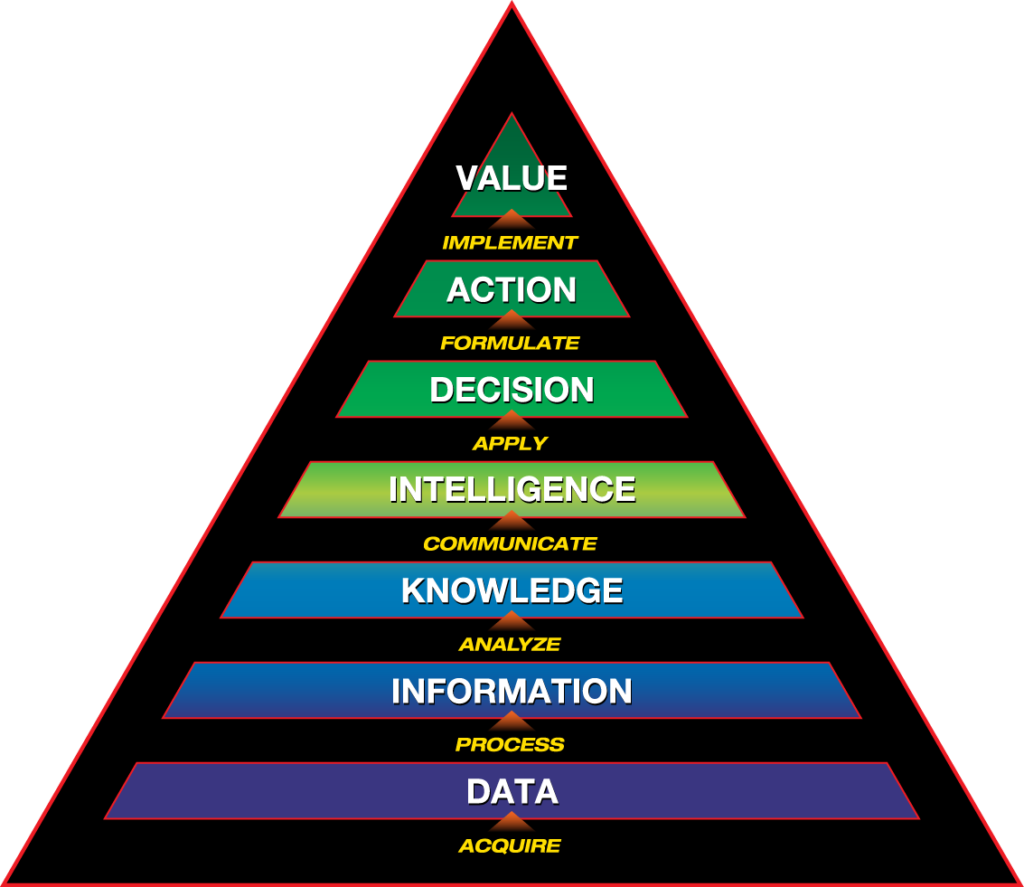Methodology
TKA has developed several proprietary analytic tools to help us visualize and improve the quality, value, and performance of our clients’ epistemic resources (data, information, knowledge, and intelligence.) Perhaps the best-known of these is our Knowledge Value Chain (KVC).
What is the Knowledge Value Chain®?
Your enterprise — business, government agency, NGO, even your family or household — has, as its ultimate purpose, producing value — results, outcomes, and impact in some specific form, for example:
- Profits and shareholder returns – if you’re a business
- Patient health and outcomes – if you’re a medical provider
- A better world, in some specific way – if you’re a social enterprise or NGO
- Satisfied customers and clients – in all cases
- Productive and fulfilled employees – in all cases
To achieve that purpose and all the goals supporting it, you take actions based on group decisions. The best decisions — those that produce optimal outcomes — are typically those based on the best knowledge (i.e., the most timely, most accurate, most relevant, etc.)
There are direct linkages between (1) how your organization produces value and (2) how it acquires and processes knowledge — that is, how it “thinks”. The KVC framework describes this transformation in detail, enabling you to leverage greater value from existing knowledge resources. We pay particular attention to the quality of data, a critical issue as machine-human hybrid approaches become increasingly feasible.
How is the KVC different?
There are other frameworks that have Data, Information, and Knowledge as foundations. We call these DIKx models — “x” typically being Wisdom or something equally abstract and lofty. What makes the KVC model different and (we think) better?
- KVC thinking makes knowledge, not the end point, but an enabling force on the pathway to value
- KVC details the transformations required to move from one step to the next
- KVC explicitly considers the users and applications of knowledge
As one client put it, “I thought [the KVC] was a really useful diagram due to [its showing] the actions needed to move through the stages and that it didn’t just stop at knowledge like a lot of the others.”
Who benefits most from the KVC?
The KVC can help anyone—in any industry—who produces, manages, or uses information in helping an organization achieve its strategic and tactical goals. We work most often with professionals in:
|
|
How can I learn more?
Three easy steps will take you there:
- Start by watching this short intro video.
- Then buy the KVC Handbook listed on the front page.
- Even better, contact us and we’ll tell you more.

Recent Comments